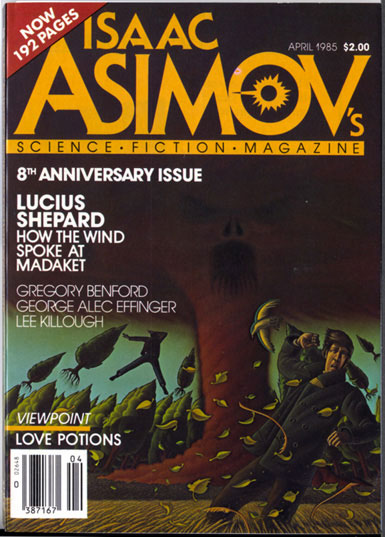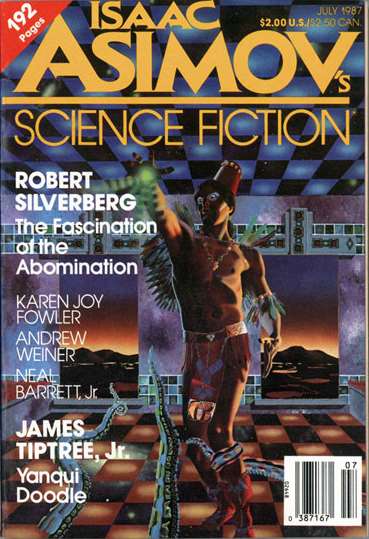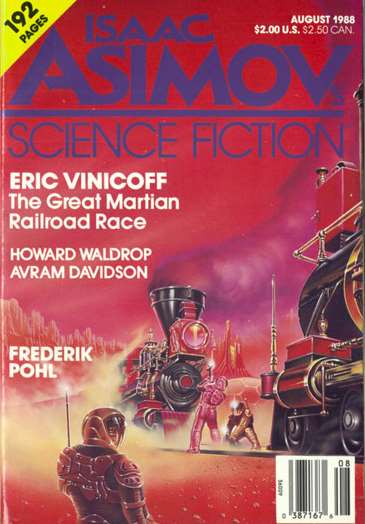Short Story
Andrew Weiner
writer
- Filter: Show all works, including those with no time phenomena.
- Found: 5 results in 3.53ms
Short Story
Short Story
Klein’s Machine
- by Andrew Weiner
- Isaac Asimov’s Science Fiction Magazine, April 1985
After Philip Herbert Klein returns from a psychosis-inducing trip in his time machine, he has philosophical conversations with his psychiatrist.
The hamster is back. Also my wristwatch, which I strapped on its back.

Short Story
Rider
- by Andrew Weiner
- in Asimov’s Science Fiction, July 1987
Arnold Lerner is deep into a fugue—a state that allows him to revisit past memories and rewrite them in your own mind. But he’s so deeply in fugue that he won’t ever come out. Then again, some people doubt both those sentences: Ruth Brandon, director of the Hartley Mind Research Center, says that it’s a long shot, but she might be able to go in after Lerner and pull him out; and some say that the rewriting of history is not just in your own mind.
Among other places, the story takes Ruth Brandon to the 1970 total solar eclipse in Miahuatlán; and quite by coincidence, I first read the story when I happened to take the July 1987 issue of Asimov’s with me on our road trip to Scottsbluff to see the Great American Coast-to-Coast eclipse of 2017. The stars (and the Moon) move in mysterious ways.
Among other places, the story takes Ruth Brandon to the 1970 total solar eclipse in Miahuatlán; and quite by coincidence, I first read the story when I happened to take the July 1987 issue of Asimov’s with me on our road trip to Scottsbluff to see the Great American Coast-to-Coast eclipse of 2017. The stars (and the Moon) move in mysterious ways.
Even if you do come back. They say you really do travel in time and that you really can change things if you try hard enough.

Short Story
The Grandfather Problem
- by Andrew Weiner
- in Asimov’s Science Fiction, August 1988
Purely as a scientific experiment, physicist Harold Levett decides to go back in time to kill his grandfather.
“It’s nothing personal,” I say. “It’s strictly a scientific question . . .”




